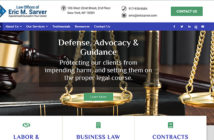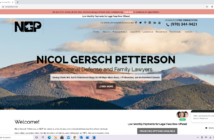A simple technique that tripled this estate/business planner’s appointments, several other great marketing ideas, and a novel approach to legal practice.
When attorney Tamsen Horton graduated from law school and passed the bar, she knew immediately she didn’t want the typical work life of a lawyer—long hours and too much time away from her family. She knew she had to figure out another way to be a lawyer and still have the freedom and location independence she desired.
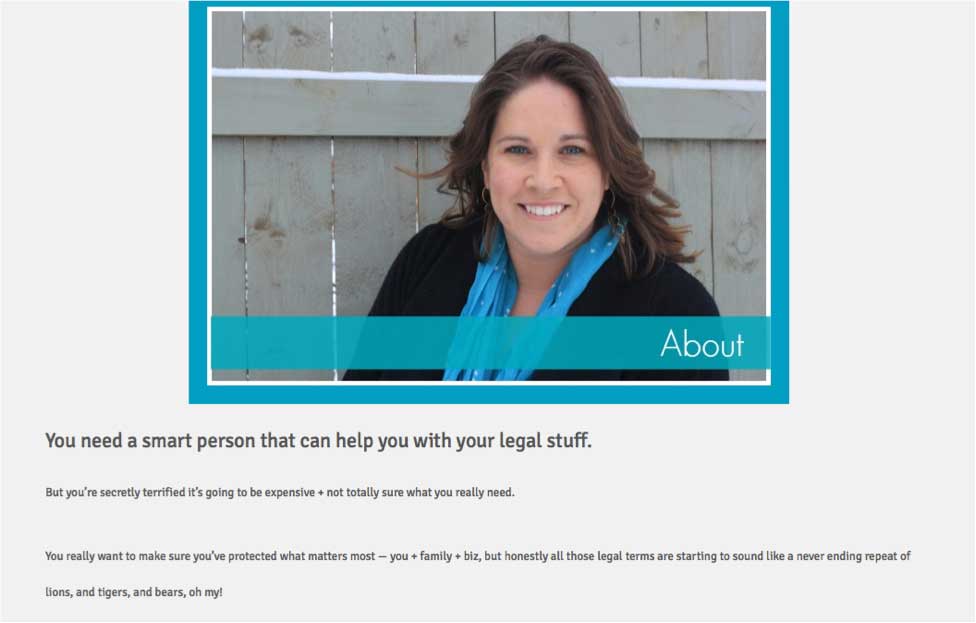
“My goal is to never have an office,” Horton says. “So far I’m succeeding.”
Horton is a Michigan-based virtual lawyer who focuses on estate planning and business planning and consulting. She mainly works with moms, mom-preneurs, start-ups and small businesses.
You can find her online at: VujaDeLaw.com.
This case study will examine how Horton has expanded her mostly referral-based practice through marketing, networking, creating downloadable products and offering 30-minute consultations.
Her Biggest Challenges and How She Addressed Them
When Horton was first starting her practice, Vujà Dé Law, she didn’t know anything about designing websites or how to write copy that would help her attract the type of clients she wanted to work with. As a virtual lawyer, however, having a strong web presence is imperative.
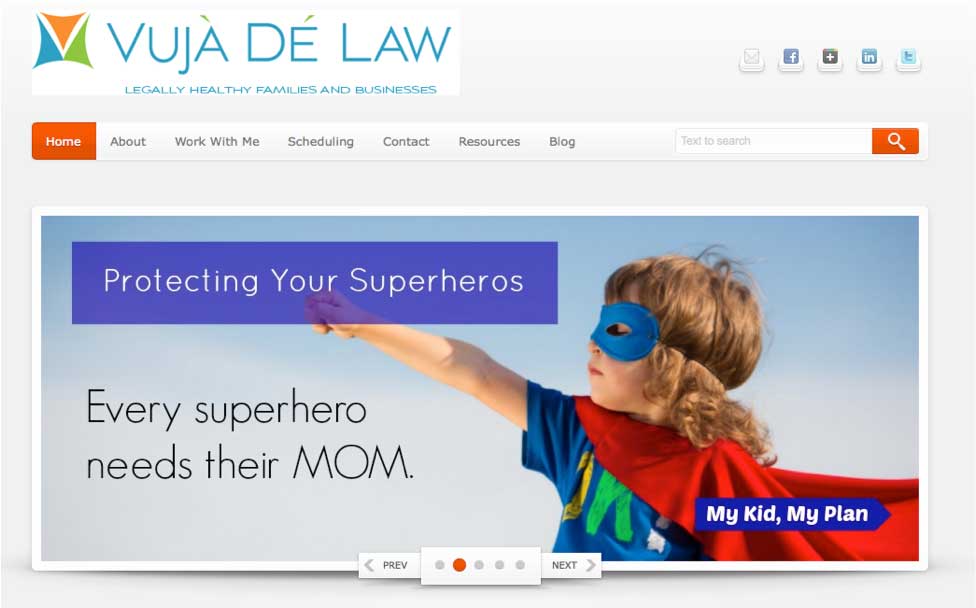
“I wanted a site that had colors and pictures that my audience wanted,” she says. “There couldn’t be scales of justice or logos from law reviews I’ve been published in on my website. My Ideal Paying Customer (IPC) doesn’t know what that is and doesn’t care.”
Although Horton recognizes that finding clients is a challenge many lawyers face, that wasn’t ever a problem for her. Writing copy for her website, on the other hand, was.
“Finding the clients wasn’t the hard part,” Horton says. “As soon as I identified who my IPC is—she’s a busy mom—it was easy to find them. The hard part was speaking the language of my tribe of people. I needed to speak in a way that would get them over the hurdle of being too busy to work with me.”
She dealt with the challenge of learning how to write copy in an interesting way.
“I forgot everything I learned about writing in law school,” she says. “That’s legal writing and nobody cares about it.”
So she checked around the web and found copywriting resources like copyblogger.com and other online copywriting training programs, and taught herself how to write copy.
“I just practiced,” Horton says. “I tried writing copy in different ways and seeing how it resonated with my IPC. Copywriting skills are especially important for lawyers. Unless you’re naturally creative, you need to learn how to use your words.”
Then one day, the floodgates opened.
“I wrote a blog post one day that was me putting out there a letter I’d written to my son if I died,” she says. “This was the letter that got me to create my ‘My Kid, My Plan’ product. It was written in my language, as a mom writing to her son. And that honestly opened up the flood gates. It just hit me—this is how my audience wants me to talk to them.”
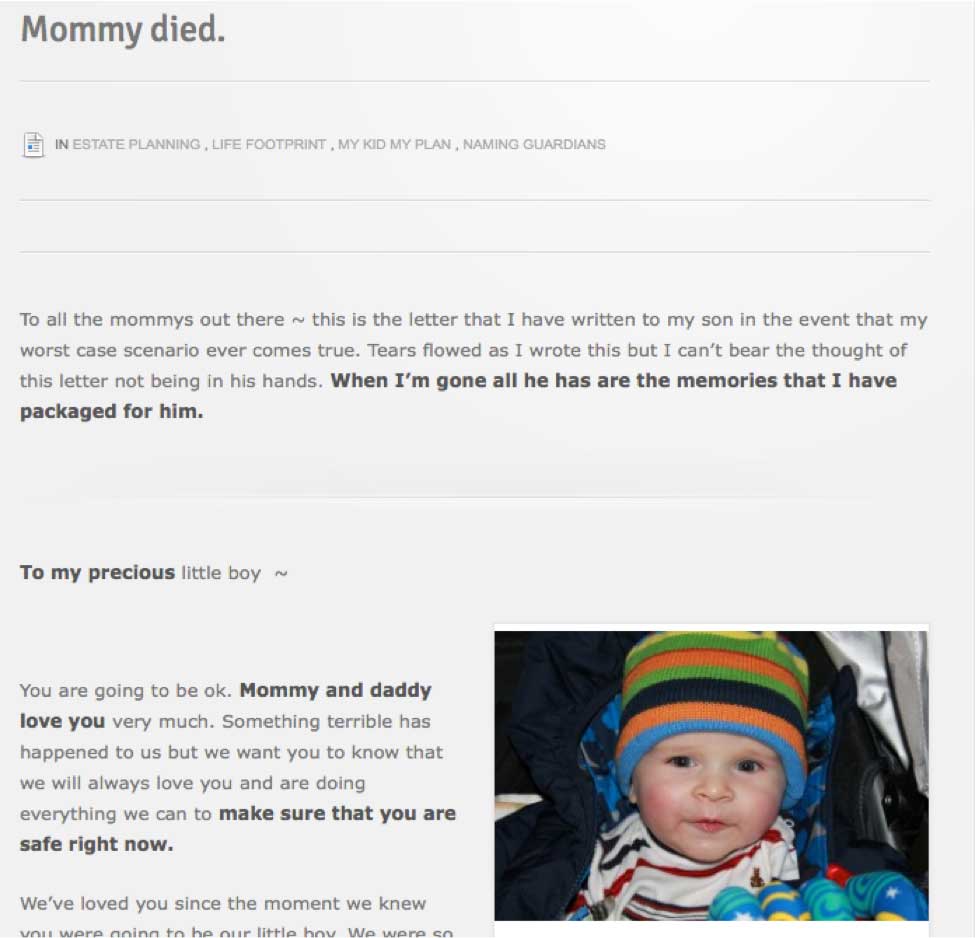
“Building a successful law business is about being able to relate what you do to the people who are buying from you,” she says. “And for me the law stuff is behind the scenes. My focus is on, how can I make this simple for people?”
Her Main Marketing Activities
When it came to marketing her practice Horton had a problem.
“I didn’t have time to market myself, to be a lawyer, to attend networking events, be a mom, get the grocery shopping done, etc.,” she says. “So I had to find a way to pull all of this off in the same 24 hours that everyone else gets. This forced me to be more creative.”
For starters, she decided to focus on her IPC—the people she wanted to be working with.
“I build relationships, that’s first and foremost,” Horton says. “When I was first starting out, I wasn’t even promoting my business. I was just getting to know my people—who they are, what they do. I want people to know me first as a person, and then I tell them I run a law business.”
She took the time to figure out where her target audience was hanging out—both online and offline—and made it her job to spend as much time with them as she could.
“I went to where my people were, whether that was online in Facebook groups or in my real life when I’m spending time with my son,” she says.
Next Horton got creative by finding opportunities to be a mom and spend time with her son, while networking and building her business simultaneously.
“I take my son, Kip, to gymnastics because they have a toddler play hour,” she says. “There is a gymnastics place by our house, so we went there initially for three or four months because it was close. But I figured out real quick that it wasn’t my target audience in terms of people who could afford to buy my services. So I found a gymnastics place on the other side of town that only has my target audience attending. I made the decision to drive the extra twenty minutes. If I’m gonna spend an hour hanging out with kids and ten other moms, I need the other moms to be people who can afford to work with me without hesitation, as opposed to where the other gym was located, people didn’t have the resources or interest in what I was selling. It’s not just about the gym, it’s about the networking. That’s how I’m always thinking.”
This same strategy even worked while she was at her gym—and created a whole new business opportunity for her.
“I go to Zumba at the YMCA,” she says. “I’m locked in a room with 45 other women, and I’m the only attorney in the group. After three or four weeks of class, I started talking to the women in the group, and I’d tell them what I do and a lot of them had husbands who owned businesses, so that opened up a whole other aspect.”
Horton says the key is to “try and stick with the same class and keep the schedule as consistent as possible.” This helps people recognize her and get to know her, which opens up the conversation about what she does and how it can help them.
Some of the places she’s had luck reaching her target audience online is in groups like the Mogul Mom Community on Facebook and other mommy blogger groups. In her offline world she has found her target audience at places like Mommy and Me, and other local mom-focused hangouts.
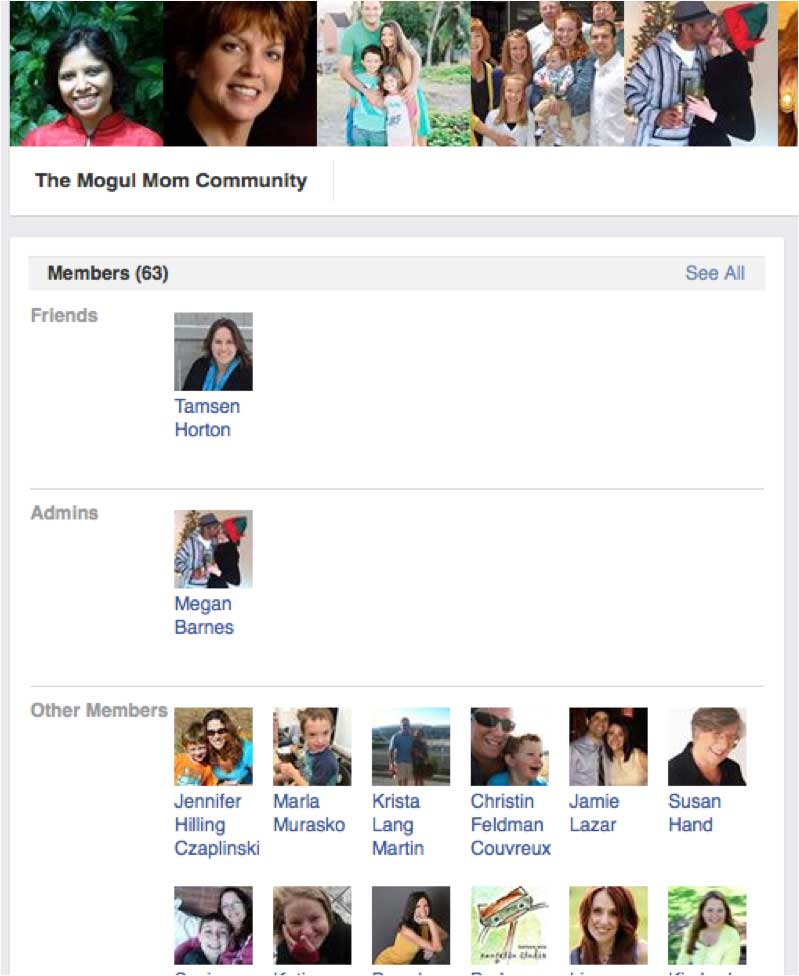
“Being where my people are, that’s what works,” she says. “You’ve gotta know who you’re selling to and what you want them to buy. And then you just reverse engineer it and think about—where are my people? What’s going to insert me into their lives? Because unless you get arrested or somebody sues you, people can live without most of law, technically.”
For Horton, marketing feels like a natural extension of who she is as a mom and as a business owner. In fact, it feels so natural to her, she doesn’t really feel like she’s marketing herself, even when she is.
What Doesn’t Work—and How She Made It
Horton isn’t big on doing things just to do them. So when she got invited to business networking events and conferences, she usually steered clear of them. Until the day she found herself feeling obligated to attend a local business conference because it was being sponsored by a group she was part of.
“It was around $500 to buy a table for this event,” she says. “I knew my organization expected me to be there, but I just couldn’t spend $500 to stand at a table. So what I did instead was I bought 50 $5 gift cards to Starbucks and I rubber cemented them to the back of my business cards. Then I walked around and talked to people.
“At the time I was doing free ‘Coffee Chats’ so this fit,” she says. “As I got to know people, we’d exchange business cards and they’d see the Starbucks card and get all excited. I handed out 15 that day, which meant I had 15 meaningful conversations. But then I also had 15 people who booked appointments with me. Afterward I thought to myself, ‘that worked.’ My advice is do something different—work the crowd. Take your giveaway and get out from behind the table.”
Horton says she’s never really tried anything that didn’t work because her philosophy has always been “go where my people are” and that makes it easy for her to decide what to do and what not to do.
“If my options are a bar function or an event with my IPC, like a barbecue at my son’s school, I’ll go where my IPC is because those people actually pay me,” she says. “Now I also do a lot of consulting and I teach business development at a local law school. So if I am looking to find attorneys who want to hire me to help them with business development, then I go to the lawyer event, because that’s where my target audience is that day.”
Offering Free Initial Consultations—and Why She Doesn’t Anymore
Horton offered free 30-minute consultations, which she called “Coffee Chats,” when she was first starting out. But that has changed recently, because she found the people she attracted just wanted free advice and weren’t ever going to hire her.
“I don’t do free sessions anymore,” Horton says. “I switched this three months ago. I used to offer free Coffee Chats because everyone kept saying I had to do free sessions. But I realized very quickly that I hate free sessions. I feel used and abused as soon as they’re over with.”
Instead, she put on her “problem-solving hat” and decided to charge for these 30-minute sessions. And something amazing happened.
“My appointments tripled!” she says. “It’s crazy! And I’m getting paid for the sessions now, which is fantastic.”
So how did Horton make this happen?
“Whether they’re a potential business client or an estate planning client, it’s $50 for a 30-minute session,” she says. “I use ScheduleOnce for online scheduling, so the person books their session and pays for it right on my website. If after the consultation they decide to work with me as a client, I apply the $50 they already paid toward their account. So if you become a client, it’s a free consultation. If you don’t become a client, you’re only out $50.”
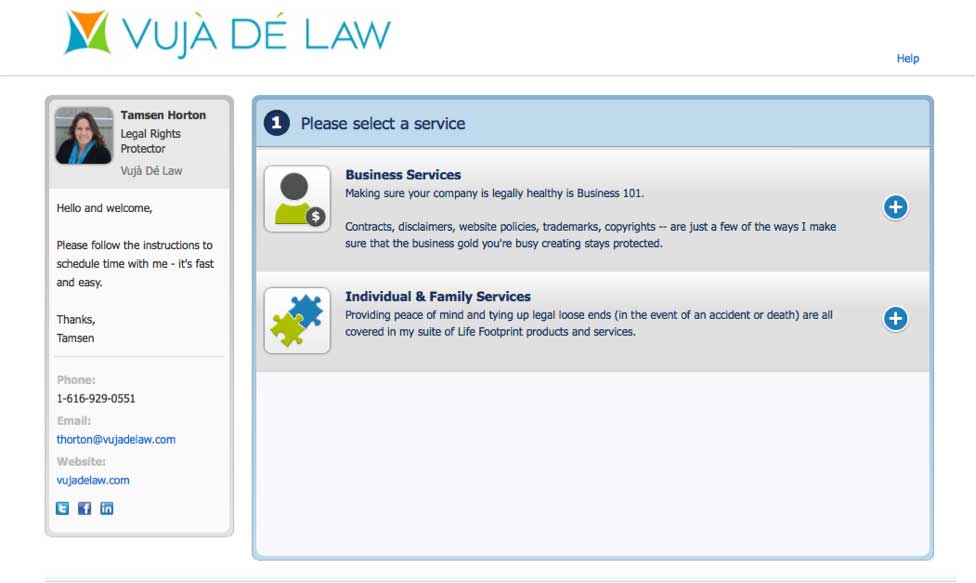
And she doesn’t just do consulting in these sessions. She also goes a step further to make sure that each person walks away with something extremely valuable, even if they don’t hire her.
“I have a really cool ‘Legal Health Road Map’ that I created a few years ago using a mind mapping software, and as I’m talking to them in the consultation I’m filling in and creating their custom Legal Health Road Map,” she says. “When we finish the call, I send it to them via email so they have something really valuable that points them in the right direction—based on what we talked about, these are the areas I feel they should address—whether they decide to work with me or not.”
She even offers in-person consultations for people in her local area, but those cost a bit more.
“There are some people who want to meet in person, locally,” she says. “I charge $300 for that, but it’s a full strategy session for their business. I’ve had tons of people go that route too.”
“Legal Bouquets” and Why She Only Emails Her List Once A Month
Horton figured out early on that her ideal customers don’t read newsletters. “They don’t even have a clue what newsletters are,” she says. “My moms who don’t really use the internet have no idea what an opt-in is.”
But rather than avoid creating an email list or emailing them regularly—she came up with another creative solution.
“I’m doing monthly ‘Legal Bouquets,’” she says. “It’s kind of like a ‘Flower of the Month’ club. I have 12 topics and I’ve created 12 content-focused eBooks. I send one out every month. For example, one month is about trademark, another is about copyright, another is about protecting your kids, etc.”
Before Horton put the work in to create these Legal Bouquets, however, she did some surveying first.
“I sent out a survey before I slotted the eBooks and asked people what they’d like to learn more about—in both business and mom world,” she says. “I looked at their answers, ranked them and then created the monthly schedule for the eBooks.”
Once each month’s book gets sent out, Horton posts them in the “Resources” section of her website, so that people can go back and download the eBooks they may have missed.
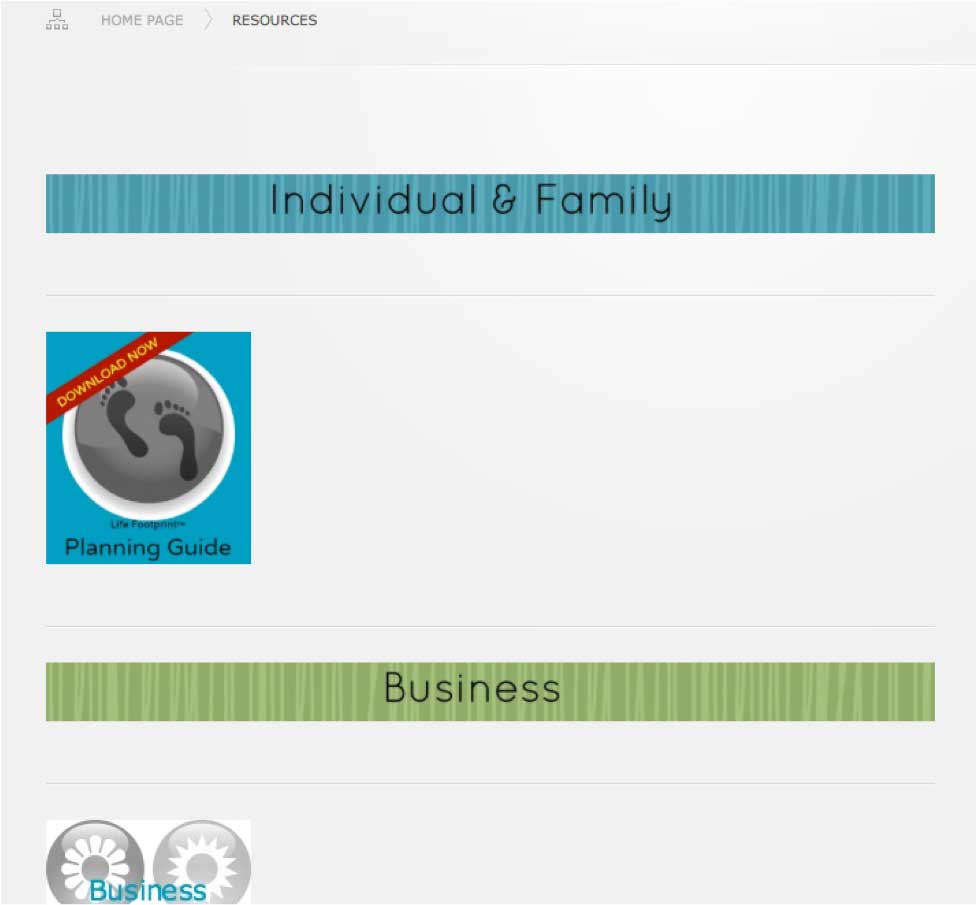
Best of all, putting these eBooks together has given Horton an excess of content that she can choose to do something different with later on, if she wants to.
“At the end of the year, I can bundle some of these eBooks together and turn them into a paid product if I want to,” she says. “The majority of the work is already done. I like to do things in my business that have an end-goal in mind. I like to create content that serves multiple purposes.”
Offering Virtual Products—and the Product that Started It All
Horton currently offers a variety of virtual products that can be paid for and downloaded right from her website. She offers health care bundles that include all the health forms a person would need, like a HIPPA Release, patient advocate, power of attorney, property protection, and wills and trusts.
But what started her down the road to creating these virtual products is a little product called My Kid, My Plan.
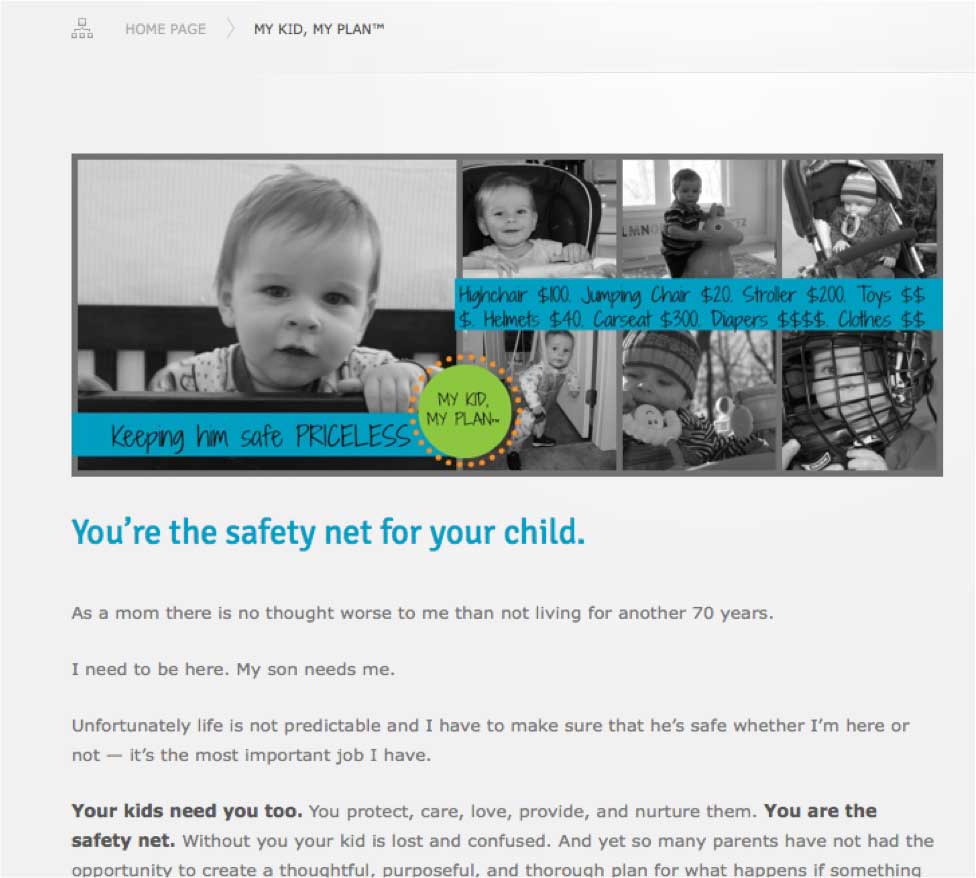
“My Kid, My Plan is an off-the-shelf product that covers all the angles of guardianship,” she says. “It’s a whole plan with letters and templates that help moms—and dads—prepare for the worst case scenario of not being there while their child is growing up. It’s been incredibly successful in terms of an entry point for people who want to do estate planning.”
The My Kid, My Plan product gets Horton’s target customers thinking about the implications of why it’s important to “take the legal stuff off the back burner.”
“It’s so easy to say ‘I’ll do it tomorrow’ and keep putting off getting the legal stuff in order when it comes to your kid and naming guardians, if something were ever to happen,” she says. “It walks them step-by-step through what they need to do to put things in place for these kinds of situations. It’s an easier place for them to start without having to do all the parts of estate planning. And they can do it at their own pace, so it’s a very calming and relaxing process for them.”
Horton says before creating this product it was hard for her to convince people they needed to have an estate plan in place.
“It’s hard for people to get there, unless they had a parent who died without an estate plan,” she says.
And because Horton is so connected to her ideal customers and is always looking for ways to network with them, she’s been able to product test My Kid, My Plan and her other offerings, with her local mom-friends.
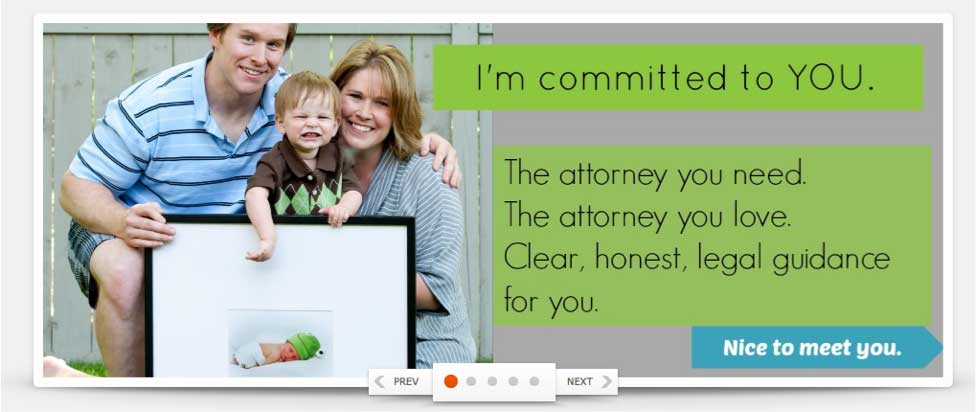
Final Words of Wisdom from Horton
Horton has been teaching business development at her local law school for years. This is important to her because she wants new lawyers to be prepared and have the knowledge it takes to run a successful legal business.
“You go to school and get educated, but no one teaches you how to make money from your craft—whether you’re a lawyer, a doctor, a dentist, etc.,” she says. “People think they’re bad at what they do when they’re struggling to make money. But really they just never got taught how to make money.”
She even goes so far as to dispel any myths that legal businesses are dying or that the economy is bad.
“There’s a misconception at times that there’s not any business out there,” she says. “Like these places are going out of business because people don’t want to buy. They’re not closing because people don’t want to buy, they’re closing because they’re not running businesses. You have to think of yourself as a business person first and a lawyer second. I consider myself a business woman who sells law.
“There’s so much money out there, you’ve just gotta know how to get at it,” she says. “Your target people might not know what they need yet, or maybe you’re not providing it in a way that’s accessible to them. That’s why it starts with figuring out who you’re targeting, who they are and what they’re all about.”

